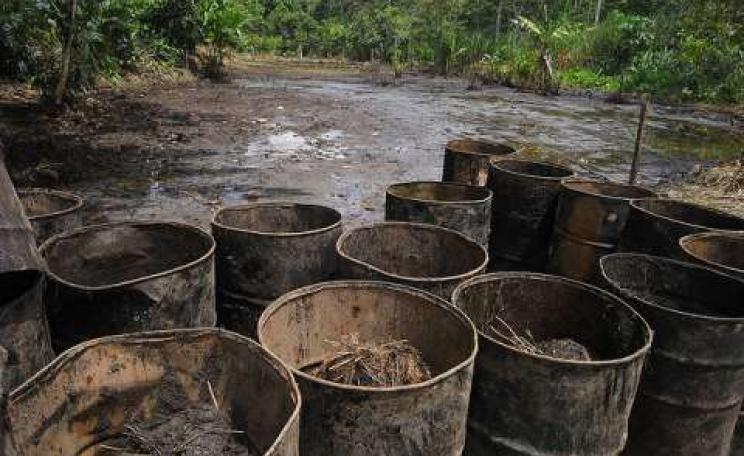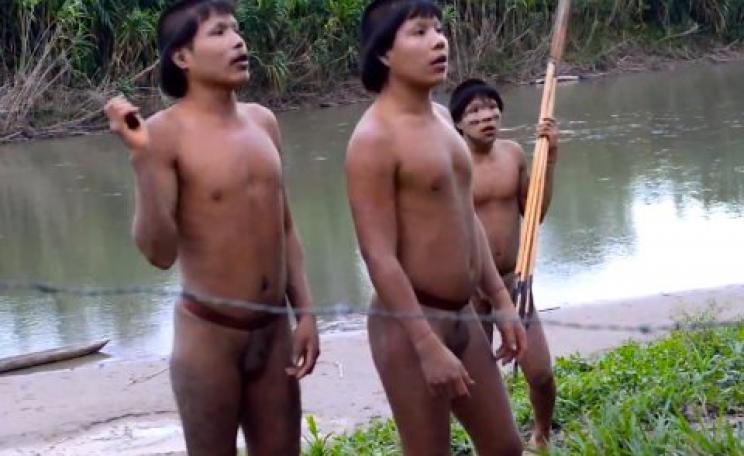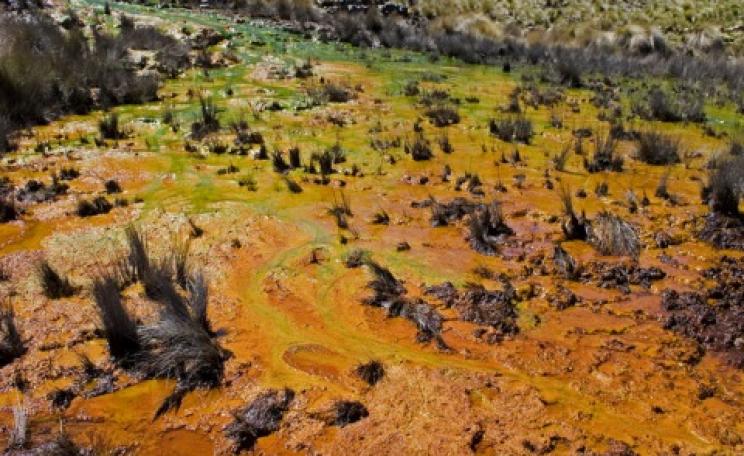As the pandemic crisis deepens, mining companies like Anglo American are jumping at the opportunity to gain good PR.
UK-listed mining giant Anglo American hosted its AGM yesterday in the wake of disturbing revelations about the company’s plans to mine in the Brazilian Amazon and its response to the Covid-19 pandemic.
Anglo American has announced that it will hold its AGM behind closed doors this year, due to the pandemic, with a quorum of just two shareholders present at the meeting.
Anglo American is using the coronavirus crisis to avoid accountability and difficult questions over its controversial operations around the planet, while other companies have opted to move their AGMs online, maintaining access for shareholders.
Amazon
Investigations by Brazilian journalists writing for Mongabay last month revealed that Anglo American and its two Brazilian subsidiaries have submitted nearly 300 applications to explore for gold and other minerals in the Brazilian Amazon- an ecosystem of global significance in the fight against climate change.
Andrew Hickman from human rights and climate justice organisation London Mining Network said: “The investigations reveal that the company - which refused to answer questions from journalists - as well as their huge and highly controversial Minas Rio iron ore mine in Minas Gerais state, has exploration interests that overlap with the territories of indigenous peoples being repressed by a Brazilian government that is seeking to open the Amazon to extractive industries.
"In order to grant Anglo American and others exploration permits in these territories the Bolsonaro Administration is seeking to create a new law, in contravention of the Brazilian Constitution.”
Anglo American markets itself as a modern, forward-looking mining company which has “the utmost consideration for our people, their families, local communities, our customers and the world at large.” Actively seeking to mine in one of the planet’s most critical ecosystems, in close collaboration with a Brazilian administration widely viewed as unstable, militaristic and anti-democratic, hardly fits with this rosy image.
For critical industry observers, however, it is not as surprising as it may seem.
Profiting
As the pandemic crisis deepens, mining companies like Anglo American are jumping at the opportunity to gain good PR.
A coalition of frontline communities, human rights and climate justice organisations challenged Anglo American’s greenwashing at its AGM yesterday, presenting evidence of the historic and ongoing examples of company misbehaviour worldwide during the Covid-19 pandemic.
Asad Rehman, executive director of London-based global justice NGO War on Want, said: “The attempt by mining giant Anglo American to rebrand their destructive practices as being somehow ‘ethical’ rings hollow with the continued failure by its AGM to ensure effective scrutiny and accountability.
"For those communities already facing the deadly impacts of their operations year on year, and who now face a public health crisis this is not just an insult, but will have lethal consequences."
The coalition will shed light on how Anglo American is advancing its destructive operations in Colombia, Brazil, Peru and Chile. They will share their experiences of how the company is capitalising on the Covid-19 pandemic, presenting itself as a solution-bearer to the problems of water scarcity, inequality, mining-related illnesses and malnutrition, which the company has helped to create in the first place.
Hannibal Rhoades, European regional coordinator of the Yes to Life, No to Mining Network, said: “As the pandemic crisis deepens, mining companies like Anglo American are jumping at the opportunity to gain good PR. But dropping parcels of food or hand gel in communities cannot solve the chronic health and ecological problems created by mining in the first place. The pandemic is making it abundantly clear that the needs of communities, not mining corporations, are essential."
Colombia
Diana Salazar, a researcher with Colombia Solidarity Campaign, said: “Thousands of Indigenous Wayuu children have died of malnutrition and thirst in the region where AngloAmerican is third-part owner of Cerrejon, a huge open-cast coal operation that consumes vast quantities of water.
"During the Covid-19 crisis the company has been delivering food parcels, yet it plans to restart operations in an area where there is little access for communities to health facilities, exposing indigenous and Afro-Colombian communities to a higher risk of infection."
Luis Misael Socarras, of Indigenous association Fuerza de Mujeres Wayuu, said: “Coal is not a human right, we can live without the exploitation of coal, but we cannot live without water and culture."
Javiera Martinez from the London Mining Network added: “For the last decade, Chile has endured severe drought. This situation is much worse in territories where mining is also present. This is the case for the communities of El Melón and Lo Barnechea who live near Anglo American’s El Soldado and Los Bronces mines.
"For these communities, mining has brought pollution, water scarcity, disease, land degradation and the destruction of glaciers and native species. They do not have access to drinking water and live in fear because they cannot prevent the spread of the coronavirus."
This Article
This article is based on a press release from London Mining Network, War on Want, TerraJusta, Colombia Solidarity Campaign, and Stop Blood Coal Ireland. London Mining Network (LMN) is an alliance of human rights, development, environmental and solidarity groups working to hold London-based mining companies to account by working closely with mining-affected communities. LMN conducts research on mining and alternatives, and works to make issues of extractivism more relevant through education, outreach and events.





